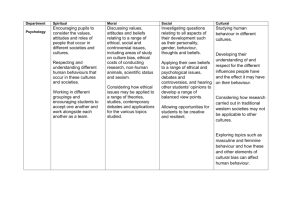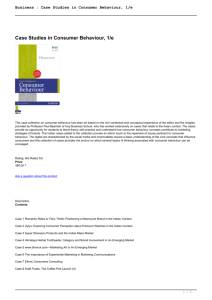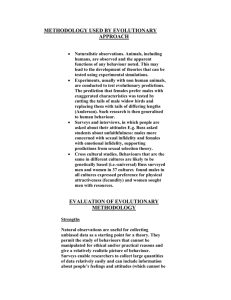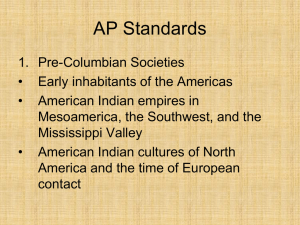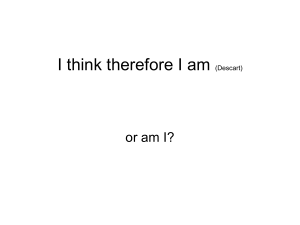Chapter2
advertisement
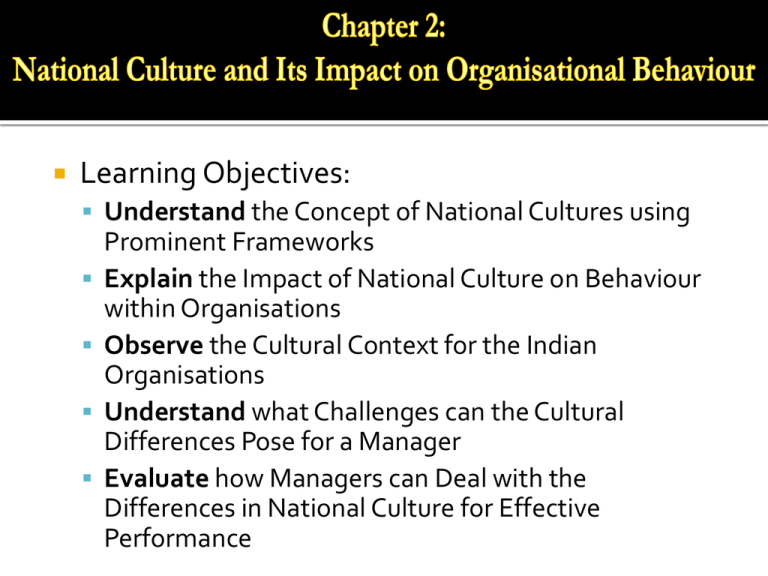
Learning Objectives: Understand the Concept of National Cultures using Prominent Frameworks Explain the Impact of National Culture on Behaviour within Organisations Observe the Cultural Context for the Indian Organisations Understand what Challenges can the Cultural Differences Pose for a Manager Evaluate how Managers can Deal with the Differences in National Culture for Effective Performance “Collective programming of the mind which distinguishes members of one [social group] from another”. This ‘software’ emerges as a group learns how to solve survival related problems, over a period of time, in an external environment and its problems of internal integration Cultures of nations evolve as all societies face the same basic questions, issues or problems, but they differ in their answers Factors like climate, natural resources, historical events shape how people view themselves, others, and their relationship with the world around them, their orientation to time and space and other views using which people deal with their lives The cultures are studied across nations rather than by homogeneous regional, ethnic or linguistic groups because research is more practical that way But a general view is that all cultures can be understood if we could compare them in terms of: How people view themselves and the world round them How people view Time How people view Space How people view relationship with other people, and how do they communicate … among other parameters Understanding Cultures Through Cultural Frameworks Most senior managers in Indian organisations still have direct experience of the agricultural, caste-based society For the younger generation also, the experience of growing up in Indian tradition and cultural pattern does have a deep-rooted influence on a wide range of issues including the behaviour within the organisation Under the British rule, India was modernized, but its social values remained It is important for us to realize that even common values are manifested differently in behaviour across cultures. Important challenges arise out of cultural differences for managers who deal with multi-cultural business environment Strong hierarchy, personalized relationships Indian social system is steeply hierarchical and highly conscious of status differences Powerful, senior and elderly people command special respect Subordinates are expected to show unquestioned loyalty and trust (Sra[d]dha) and in return, complete protection and care flows from the superior Family/social group centered Employees tend to be Collectivist, not Individualistic in organisations in India. The basic unit of society is thought to be family, rather than an individual. The primary commitment of an individual is to family, not work Visibly influenced by religious / spiritual beliefs These attitudes and practices are regularly reinforced by frequent religious festivals and rituals, rites and specific menus associated with those festivals Coexistence of Contrasts Realizing detachment from the “Maya” (Illusion) of the material world Transcend it for achieving un-ending union with the supreme being, the ‘popular’ religious are more ritualistic Desire to be embedded in a Group Indians feel comfortable if they are with other members of preferred in-groups, who are usually their families, friends, colleagues and members of their own caste At work, informal networks are formed along these lines Context sensitive or Situational Behaviour Most people in India perceive a situation and the responses to it as one episode in an on-going flow of interactive relationships between situations and responses. That means that behaviour can be different on the basis of three situational elements generally known as the Place, Time and the Person (Desha, Kaala and Paatra) Our exposure to western influences is very unlikely to be stronger than the influence of our cultural values received during the formative years The orientation of ‘being’ rather than ‘doing’, along with high power distance may hamper effective teamwork and acceptance of self-managing teams as a work form When Indians come together, consensus and cooperation become very difficult to achieve, and arguments stretch on, ‘outsiders’ are not trusted Proneness for dependency, and educational system that is still along the British line of thinking and fails to acknowledge and develop many subtle aspects of the ‘Indian-ness’, makes Indians better subordinates than leaders Insensitivity to cultural causes of behaviour difference can cause managers: Not to recognize the other person, but to judge only on the basis of narrowly defined, only skill-based criteria Ignore the reality of why a person is the way he/she is Assume that all people are same (essentially like me) Judge that if they are not same as I am, they are inept (or whatever else): this can lead to racist, sexist, ethnocentric behaviours To Choose not to see the cultural differences and thereby limit managerial choices Encourage employees to focus the suitability of the values to organisation’s survival and growth, rather than rigidly focusing on values as ends in themselves Create a sense of belonging among Employees Remember that some individuals may differ in their values from the values of their national culture Select rewards in a way that they are in harmony with the cultural values, not against them Discern which cultural values are most deeply held and unlikely to change

